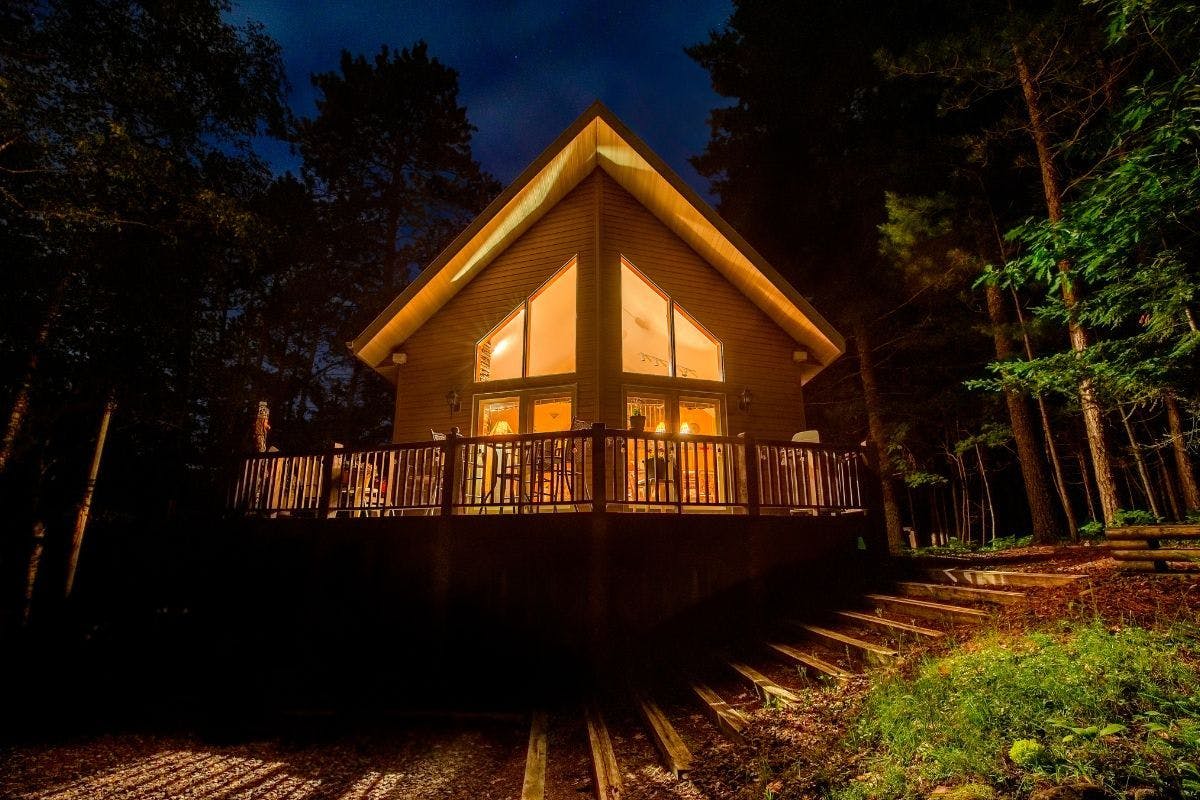Backup Battery vs. Generator: How Do They Compare?
Last edited
Author
Andrew Giermak
Solar and Electrification Writer and Editor
Editor
Andrew Blok
Electrification and Solar Writer and Editor

During a power outage, you only used to have a few options: sit in the dark, light some candles (carefully!), or crank up a backup generator.
Now a newer alternative is on the scene and rapidly expanding: backup batteries. Rising with the popularity of home solar panels, batteries go great with solar, but can stand on their own, too. From small, portable batteries to larger home energy storage systems, there are batteries for every niche.
Here’s how batteries and generators stack up against each other.
See how much you can save by going solar with Palmetto
More frequent power outages increase the need for backup power
Power outages across the US are a serious issue. The Department of Energy reports the US economy loses $28-$169 billion a year because of power outages. Weather-related events cause most outages.
In recent years, from Florida to North Carolina to California, Hurricane Helene, Hurricane Milton, and the Pacific Palisades wildfires caused power outages as part of more extensive catastrophic damage. In 2024, the National Oceanic and Atmospheric Administration recorded 27 tornadoes, hail storms, heat waves, winter storms, wildfires, hurricanes, and floods as disasters causing $1 billion or more in total damage. It was the second most in a year, and climate-driven extreme weather is likely to increase in frequency.
Aging grid infrastructure is another major cause of increased power outages. Some of the US power grid is well into its third generation, dating to the 1960s and 70s. Some parts are even older. This means they are more susceptible to damage in disasters and less able to sustain our increasing demand for electricity.
Replacing old infrastructure won't happen overnight. So, homeowners consider independent backup power solutions such as battery storage and backup generators.
Hours of power outage per utility customer in the US by year

Data from US Energy Information Administration.
Solar batteries vs. backup generators
Standby generators are a common backup power option. Solar battery storage is becoming more viable and popular as home solar panels are, too. There are many benefits to pairing batteries and solar panels.
Solar backup battery pros
Rechargeable renewable power: A backup battery system attached to solar panels can recharge with renewable power as long as there’s sunlight. As soon as you have sunlight again, you’ll have solar power.
Free and easy to charge: Once activated, a solar battery will recharge automatically with power from your solar panels. Even without an outage, you can charge and discharge your battery to avoid high-cost grid energy, use clean energy through the night, or get you through an outage.
Easy to start: Solar batteries are always on. In an outage they can provide backup power automatically without the fuel or fumes concerns of a generator.
Quiet: A solar battery is almost silent.
Clean: Solar batteries operate without fumes or exhaust and can be installed indoors or out.
Increased home value: Solar panels have been shown to raise property value, and batteries are assets that could, too.
Tax credits and incentives: While the tax credit for purchase batteries expired for homeowners at the end of 2025. Leased batteries (with or without solar) still qualify for tax credits that the leasing company can use to reduce monthly payments.
Solar backup battery cons
Upfront cost: Purchased solar batteries are a significant expense, though incentives can reduce the cost. In some places, like California, solar batteries can reduce your solar payback period according to some analyses.
Capacity: While you can certainly install enough batteries to completely back up your home, it may be prohibitively expensive. Often, backup batteries power critical loads: the few things you need to get through an outage.
Lifespan: Solar batteries can be expected to last 10-15 years. Because solar panels generally last 25 or more years, you may need new batteries over a home solar system’s lifespan.
They need sun: While generating free energy from the sun goes largely in the positive column, solar batteries need the sun hitting your solar panels to recharge during a power outage. Should you get a stretch of feet of snow, or lots of grey weather, solar batteries may not reach full charge.
See how much you can save by going solar with Palmetto
Pros of backup generators
Guaranteed power: As long as you’ve got fuel, you have a power source. You can run as little – only critical appliances or devices – or as much of your home as you want, depending on the size of the generator.
Good in an emergency: Generators are a good resort for power in an emergency.
Can be portable: Generators can be portable, so they can be good to take on the road or to an event where you want power.
Can be cost-effective: If you rarely need backup power, and depending on factors such as net metering in your area or state, a backup generator could be more cost-effective than solar batteries.
Cons with backup generators
Carbon monoxide: A generator must run away from dwellings due to the gas exhaust and risk of carbon monoxide poisoning.
Dirty: A generator gives off exhaust and fumes from the gas.
Fuel: A generator needs fuel, and needs enough fuel for how long you expect to use it. This can be costly and might not be possible depending on the length and severity of the emergency or outage.
Maintenance: Generators need the proper maintenance and cleaning to run efficiently, safely, and reliably.
Noise: Generators are louder than solar batteries.
Backup batteries vs. backup generators
| Batteries | Generators |
|---|---|
| Minimize disruptions during an outage | Minimize disruptions during an outage |
| Can recharge for free with solar panels | Refuel with gas |
| Expand solar savings into night time hours | No benefit outside of outages |
| Clean and quite operation | Can generate annoying or harmful fumes |
| Little to no maintenance | Higher maintenance requirements |
How solar panels operate during a power outage
Standalone solar panel systems typically shut down in a blackout to avoid sending electricity to the utility grid when utility workers are repairing power lines
Backup batteries can temporarily disconnect from the grid, allowing your solar panels to continue working.
How solar panels work with battery storage
Battery storage helps you have little or no power disruption in a power outage. With enough energy storage capacity, you can keep your home running for days with no change in routine.
The excess electricity generated by your solar panels is stored for use when your panels can't generate power.
Solar power systems with backup battery storage can temporarily separate from the grid during an outage, supplying the home and backup battery with power when the sun’s out.
Not all solar panel systems with batteries have inverters that can do this, so it’s important to make sure your installer designs your system with this need in mind if you want battery backup power.
How solar panels work with a backup generator
Home backup generators are designed to detect outages. They have a switch that disconnects your home from the utility grid and connects to the generator. During an outage, your solar panels will stop producing electricity, and your gas-powered backup generator will produce electricity.
How solar panels work with no backup system
If you don't have a backup option and there’s an outage, the inverter shuts your system off and stops electricity going to the grid to protect the people fixing the outage. Your panels won’t send power to your home until the outage is over.
When solar plus storage makes sense for you
Power outages in the US are on the rise because of climate change and our aging grid. While generators are a solution for emergency power, solar battery storage can help you save money, use more clean energy, and navigate outages.
Working with Palmetto ensures you have the right options in place for your home. Find out today what you can save with solar and storage.
See what solar can do for you:
Frequently asked questions
What’s better, a home backup battery or a backup generator?
While both options can provide different levels of backup power during an outage, a battery paired with solar can provide additional benefits outside of an outage by stretching your solar energy farther and helping you avoid expensive grid energy.
What are the disadvantages of a standby generator?
Generators need a large amount of fuel to run, especially if you’re counting on generator power for a long span and/or to run most or all of your home. Generators are louder and can generate exhaust or fumes, including carbon monoxide in some cases.
Are batteries better than a standby generator?
Batteries can be a better fit than a generator, especially if you have solar panels and have fewer backup needs. Batteries can also provide value outside of a power outage. They’re cleaner and quieter and, depending where you live, can save you money.
What’s the best battery for home power outages?
The best battery for home power outages is the one that best fits your needs. Buying or leasing a battery bigger than needed to back up your essential devices will cost more than necessary. Installing a battery that can’t back up everything you need will deliver a frustrating experience.


